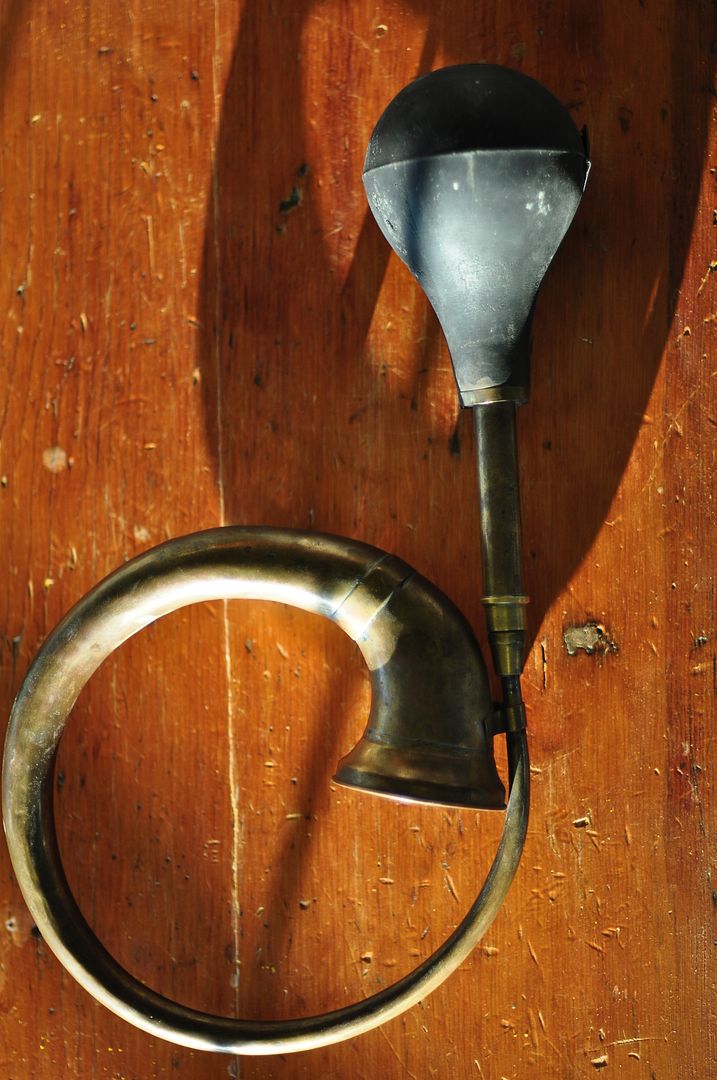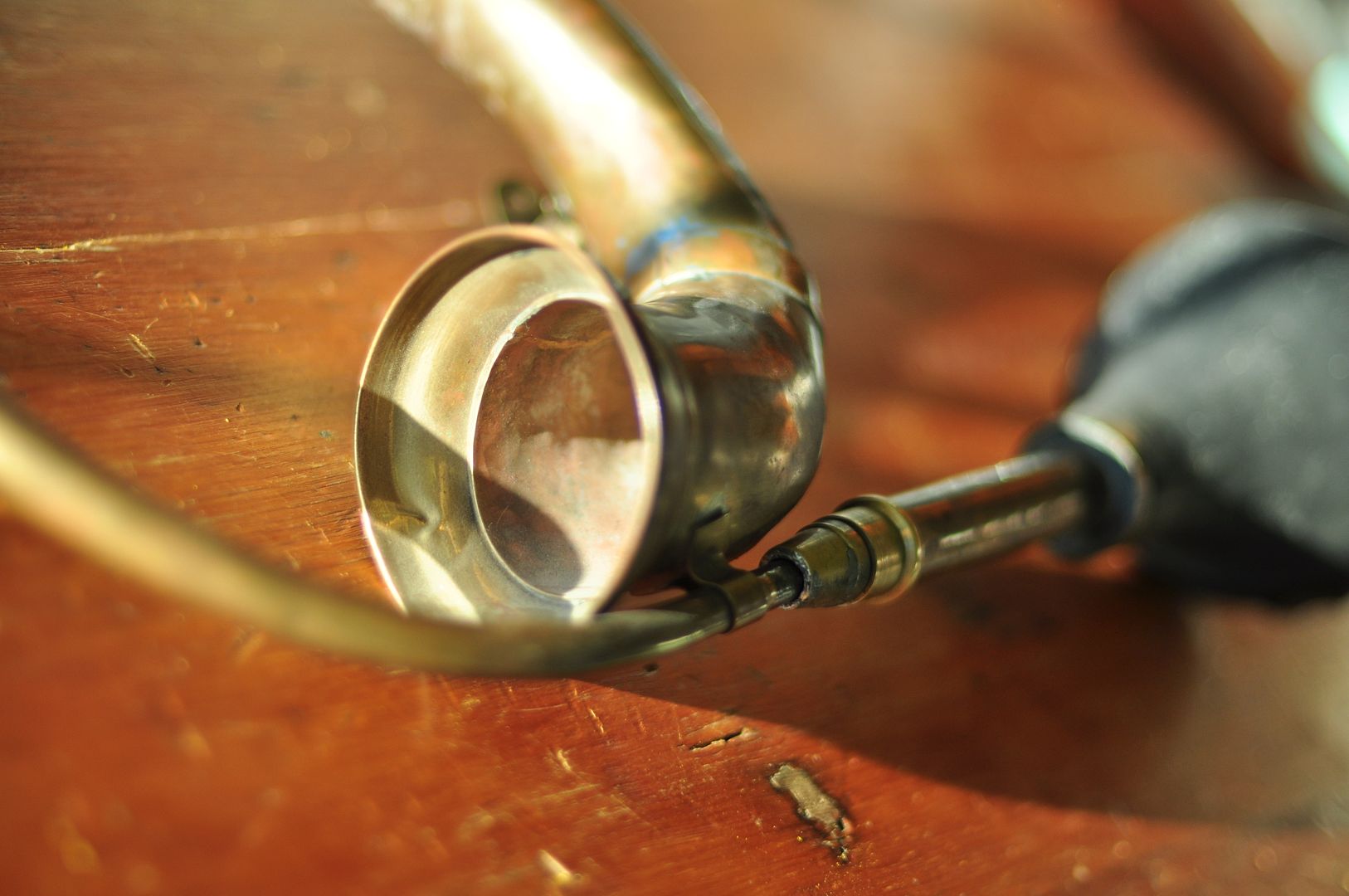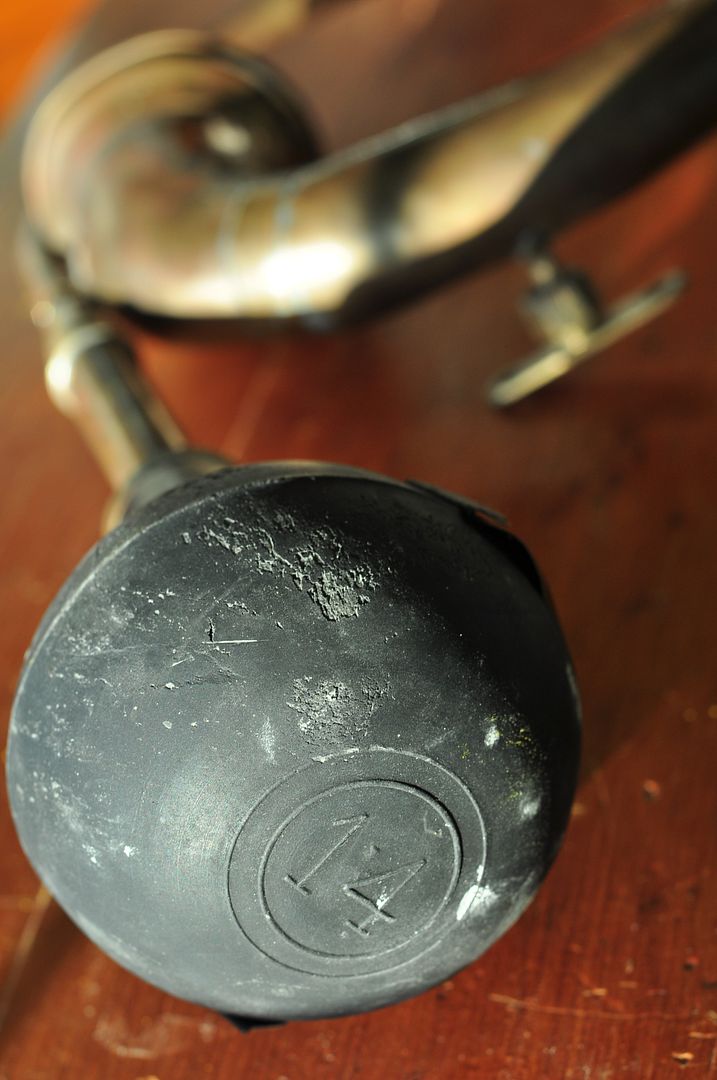Right after I read the story, I go looking for an old horn to screw right to the wall.
There are things worth the proclaiming.
And after I find one, I walk around the house with the horn in hand trying to figure if it looks best on this wall? Or the back of this door? The Farmer raises his eyebrows.
“A horn on a wall?” He’s grinning boyish. Shalom and Malakai are bickering loud over a game of chess.
“Because you’re thinking it’s not quite loud enough in here yet?” he winks.









“You!” I tease, poke him in the shoulder, him broad like a beam that carries half my world.
“Whadya think? Does it look right here?”
“I think I’ve got a wall out in the barn it might look perfect on.” He winks, shields himself with his arm to fend off the next poke.
“But if you knew the story….” He nods, knowing, smiling, “Uh huh.” Stories can turn around whole hard hearts. Jesus walked backroads and spun stories and turned around lives and the axis of the cosmos.
I tell the story at lunch.
“So I read it a book … True story.“ I pass down the squash. “A man drove a stretch of highway past this tattered cardboard sign that read:
“Honk if you’re happy!”
And who doesn’t roll his eyes at such naivete? As if the world is this strange hybrid of Pollyanna and Sesame Street — if you’re happy and you know it, honk, honk — when it’s really just a strange old world, broken and a mess and aching in the dark. But what if the choice in every moment always is: Doxology or dark?
Shalom offers me her glass and I pour her water.
“But there’s this one day when he drives past the sign with his little girl, and on a whim, he beeps the horn.
And every day, when he passes the sign, his daughter begs him to do it again, and pretty soon, every time he’s on this stretch of highway, this jaded man, cynical man’s anticipating the sign. Anticipating honking his horn. And do you know what he said?”
I want to make sure I get it right. I push back my chair, to get the book off my night stand.
Flip through the pages… There.
“And just for a moment… I felt a little happier than I had before — as if honking the horn made me happier…
If on a one-to-ten scale, I was feeling an emotional two, when I honked the horn, my happiness grew several points… In time, when I turned on to Hwy 544, I noticed that my emotional set-point would begin to rise. That entire 13.4 mile stretch began to become a place of emotional rejuvenation for me.”
I lay the book down on the table, reach for the water pitcher.
“See what happened to him? The sign said, “Honk if you’re happy. And he discovered that the act of honking the horn — it made him happy.”
The act of giving thanks — ends up giving you joy.
“Honk, Honk!” Malakai had grinned at the end of the table.
His mouth’s full of food.
I love him wild.
“So who puts up a cardboard sign beside a highway: “Honk if you’re happy”?”
I have to get to the rest of the story before the table erupts into a fest of honking geese.
“This man’s got to find out. So he finds a house on the other side of the trees that line the highway — and he goes up to the door and asks the folks if they know anything about the happy sign?
And the man at the door welcomes him in and says yes, yes, he made the sign.” Malakai’s grinning, his cheeks right full.
“And this is why he made the sign: Because he was sitting there everyday in his house, sitting there in a darkened bedroom with his young wife who was terminal, sitting there watching her every day, as she lay there waiting to die.
And one day when he couldn’t really take it anymore, he painted up that sign and stuck it out by the road. Because, he said —” I reach for the book again, to find the right page, to get the words right:
“I just wanted people in their cars not to take this moment for granted. This special, never-again-to-be-repeated moment with the ones they care for most should be savored and they should be aware of the happiness in the moment.”
I look around at all their faces ringing the table, the jewel of them slipping around me in this space.
Light’s falling across the table.
Shalom’s one strand of loose hair is its own gold.
Something inside of me trumpets loud and long.
I can only whisper the end of the story.
“At first, after he put out the sign, there was only a honk here and there. His dying wife asked what that was about and the husband explained how he’d put the sign out there. After a few days, there was more honking and more… And the husband said that the honking…”
I look down again at the book but everything’s blurring. Finally the line surfaces…
“… that the honking, it became like medicine to her. As she lay there, she heard the horns and found great comfort in knowing that she was not isolated in a dark room dying. She was part of the happiness of the world. It was literally all around her.”
The medicine we can give our souls on our darkest nights –is to find ways to give thanks for every glimmer of light.
The light of goodness, of God’s glory, was still literally all around her.
God literally aways still around us. And we give thanks, not because of how we feel — but because of who He is. And that He is always right here with us.
So much light’s falling across the table.
“I think that horn of yours, it will look best in that doorway.”
The Farmer winks again.
And when The Farmer heads out to the shop after lunch, I call after him — Remember to bring in a screwdriver! So we can hang up that horn.
And he waves back to me as he runs across the farmyard.
And when I’m standing in the kitchen, wiping off the counters, I hear it clear, from the farm pickup parked out in the laneway, out by the shop:
Honk! Honk! Honk!
And I laugh! He’s out there honking the horn of his truck!










I turn to the window, laughing…. He’s happy! Happy…
And I reach for my pen laying on my open gratitude journal there on the counter.
“Honk if you are happy” is in reality: “To BE happy — honk.”
And “Give thanks if you are joyful” is in reality:
“To BE joyful, give thanks.”
Being joyful — isn’t what makes you grateful. It’s being grateful that actually makes you joyful!
And I write it down in my gratitude journal, “The farmer honking a horn — and that grin of his.”
This has become like medicine to me.
It’s the writing down of our thankfulness — that turns us the right way toward joyfulness.
It’s the writing down of our thankfulness — that turns us the right way toward joyfulness.
Shalom waves to the Farmer from the window. He’s waving back at her.
She sings the words quiet to him, “Honk if you’re happy!” and she knows he can’t hear.
But all the world is heaven’s clarion and even in the dark, we are surrounded by it, all the happiness of the world.
I keep the journal close, always ready to give thanks.
Because literally —
His goodness and glory is still all around us and still greater than all the dark.

What does the Christ-life really look like when your days are gritty, long — and sometimes even dark? How is God even here? My story of just that: One Thousand Gifts
Are you ready to begin—or begin again—a life-changing habit of daily gratitude? Want to reset, refresh, reboot your life and literally rewire your brain? Be one of the more than 1.5 million people who have stepped into the life-change of this experience.
It’s only in the expression of gratitude for the life we already have, we discover the life we’ve always wanted . . . a life we can take, give thanks for, and break for others. We come to feel and know the impossible right down in our bones: we are wildly loved – by God.
Let’s end the year strong in joy as we count all the ways He loves us! Life is too short to do anything but truly savor it — to count all the ways you truly loved.







